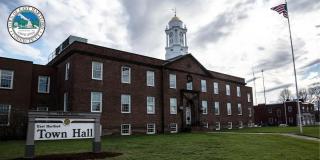Charter Revision Commission - Message from the Chair

The Charter Revision Commission was established earlier this year to review the East Hartford Town Charter and make recommendations for any amendments to such charter. First—I want to emphasize that no formal decisions have been by this commission yet. We have hosted a public hearing because we are now beginning to discuss details and will soon be in a place to finalize our next steps. We are required to make recommendations by the end of January to the town council, which the council will vote on, and if approved will make it to the 2022 ballot for residents to have the final say and vote on.
I want to take a few minutes to provide an overview of the process and our meetings so far. To date, we have tallied a little over 14 hours of meeting time and many more hours of research, reading, and analyzing the complex issues we face. That may not sound like a lot, but it is a substantial amount of time and effort that matches the importance of our task as a commission.
Our first meeting was an organizational one on July 27th. In that meeting, we discussed topics to explore in addition to the list of items the town council gave us and that became the list we have utilized for the most part. I should note that even within these topics other things are discussed. For example, when we began discussing term of office for mayor we also discussed whether it made sense to extend the council term to 4 years as well given that both offices have the same terms right now.
Our next meeting was a public hearing, and we only had one speaker, who expressed support for moving to a Town Manager form of government and consolidating some of the departments. We spent our August meetings discussing what questions to ask to help us make an informed decision, and as we did on our August 24th meeting, establishing a preliminary timeline to address issues.
The first issue and perhaps most important—whether the town should have a “professional” person in charge of overseeing all town government operations—or simply put, whether we should continue to have a strong mayor form of government that is effectively unchanged, move to a town manager form of government, or provide a form of hybrid with the establishment of a chief operating officer to assist a strong mayor.
We spent September and the first half of October researching and addressing this question. In our first meeting, we had a set of researchers (Matt Hart, Jim Svara, Jason Grant, Dr. Mohamad Alkadry) address the question of form of government. We made our questions public, for residents to orient themselves as we participated in the discussion with the speakers. In our next speaker session, we brought in a bipartisan panel of practitioners (Thea Montanez, Mark Boughton) to discuss the day to day operations in various forms of government. These discussions were invaluable as it allowed us to move from broad conversations to more detailed questions about the form of government.
In late October, the pace of our work picked up considerably. As you will see from our October 22 meeting minutes, we each voiced, for the first time, our preliminary opinion on the choice of a strong mayor/COO/town manager. Again, I want to emphasize that this was nonbinding, but essential after we digested the research and comments we heard from speakers because we realized that a number of the other items on the list are fundamentally impacted by the form of government. This allowed us to begin expanding discussions to the other topics, ask legal questions of corporation counsel, and hold what we aim to be a substantive public hearing to provide the final piece of the puzzle before we make a formal recommendation.
This will not be the final opportunity for residents to speak. Every meeting has included an opportunity for residents to speak, and I envision future public hearings to provide a formal opportunity to be heard.

